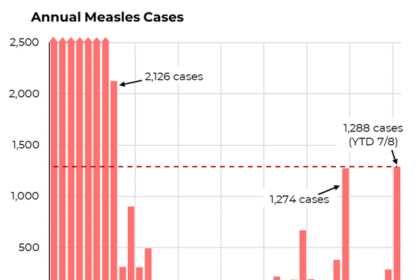Key takeaways:
-
BTC options signals caution but not an outright bearish market shift.
-
Bitcoin ETF outflows and futures premiums show neutral-to-bearish sentiment, but no panic.
Bitcoin (BTC) fell to $114,013 on Friday, causing over $200 million in liquidations of leveraged bullish positions and hurting sentiment in BTC derivatives markets.
Investors appear to be losing confidence after three straight weeks of failing to hold prices above $120,000. But does this mean the bull run is over?
Under normal conditions, Bitcoin monthly futures trade at a 5% to 10% premium compared to spot prices to cover the longer settlement period. The current 6% premium is the lowest in four weeks, showing weaker demand for leveraged bullish positions.
While this is not strongly bearish, it signals reduced confidence despite high institutional demand.
Bitcoin can’t decouple from stocks amid tariff tensions
Bitcoin is trading only 7% below the $123,182 all‑time high from July 14, but gold remains near $3,350, unchanged from two weeks earlier. Many Bitcoin investors expected the “digital gold” asset to move independently as the global trade war escalated, yet the opposite happened.
After a short period in late June when Bitcoin moved differently from the S&P 500 index, the correlation between the two has climbed above 70% in the past three weeks. Instead of acting as “digital gold,” Bitcoin is now trading more like a high‑risk tech stock. This may also explain why its $2.3 trillion market value is close to that of Amazon or Google.
This shift is not necessarily negative. Investors’ views change over time, and global events such as US import tariff disputes and increases in the money supply affect every market. If traders think the job market is getting weaker, they often seek safety in cash and short‑term bonds.
Demand for the 1‑year US Treasury has reached its highest level in three months, with investors accepting lower yields. This happened as the US Bureau of Labor Statistics revised May and June job reports downward, while unemployment rose to 4.2% in July from 4.1% a month earlier.
Traders show less confidence in BTC above $114,000
To assess whether Bitcoin whales and market makers are reducing leveraged bullish positions or protecting against price declines, one can examine the BTC options market. In bearish conditions, put (sell) options generally trade at a 6% or higher premium over similar call (buy) options.
The current 5% delta skew between puts and calls is on the edge between neutral and bearish sentiment, a stance that has held since Wednesday. This marks a full reversal from July 18, when the skew was leaning toward bullishness. The higher cost of downside protection indicates weaker confidence in the $114,000 support level.
Related: Metaplanet plans to raise additional $3.7B to buy Bitcoin
Investor sentiment also took a hit after $115 million in net outflows from spot Bitcoin exchange‑traded funds (ETFs) on Thursday, ending five days of consecutive inflows.
On the positive side, Strategy (MSTR) announced on Thursday plans to issue a $4.2 billion stock offering, which could help prevent large Bitcoin sales and maintain stability in derivatives markets.
Judging only from derivatives data, there is no sign that the 2025 bull run has been canceled or that traders are overly concerned about the recent price decline.
As Cointelegraph reported, August tends to be a historically slow month for Bitcoin, with the exception of post-halving years. Meanwhile, numerous market analysts expect the bull market to last into October.
This article is for general information purposes and is not intended to be and should not be taken as legal or investment advice. The views, thoughts, and opinions expressed here are the author’s alone and do not necessarily reflect or represent the views and opinions of Cointelegraph.










